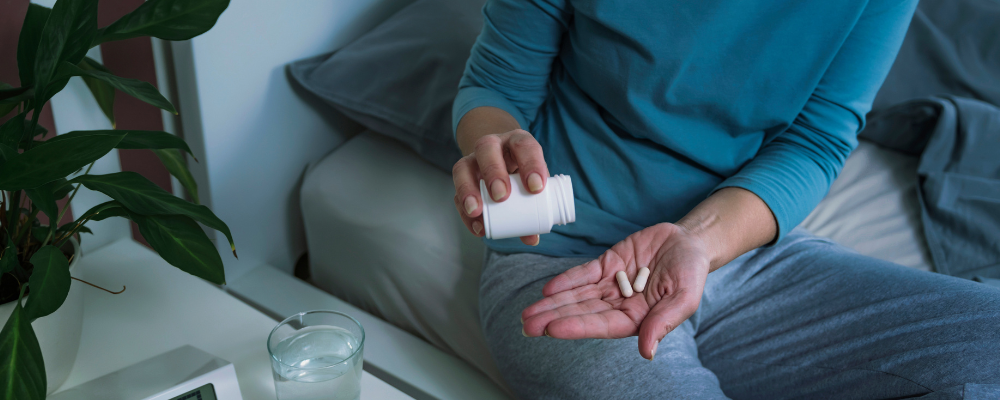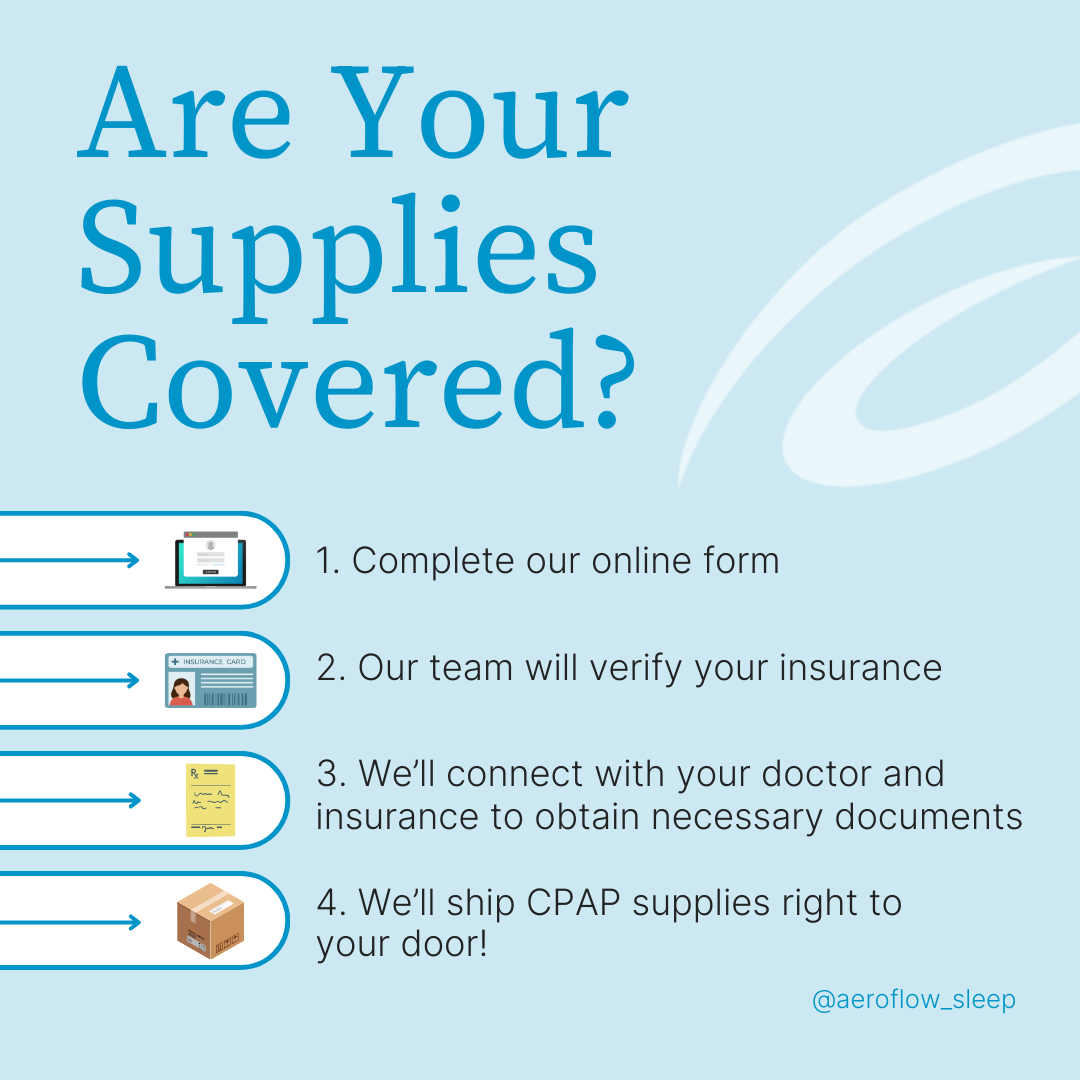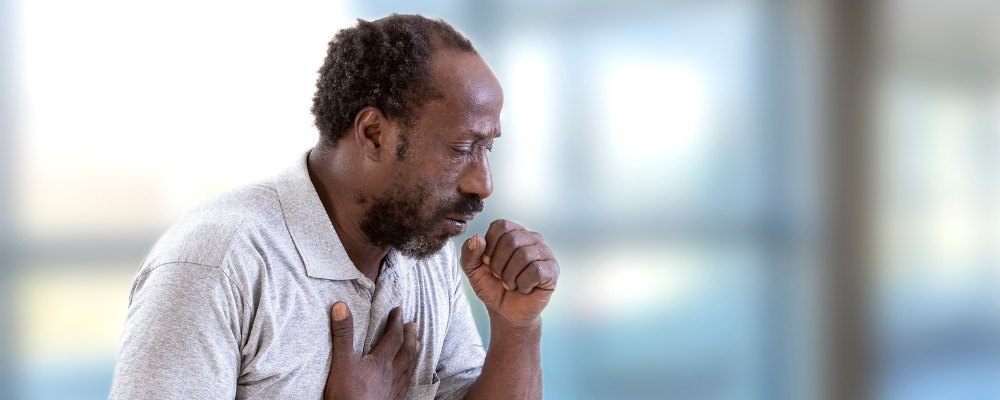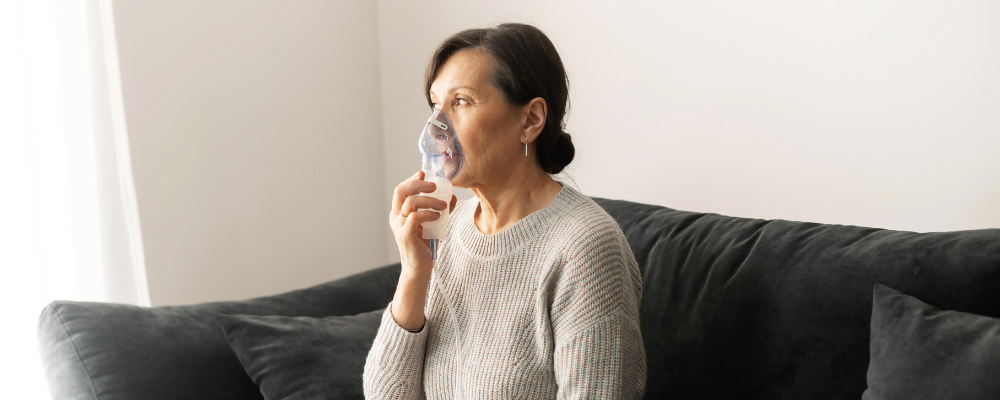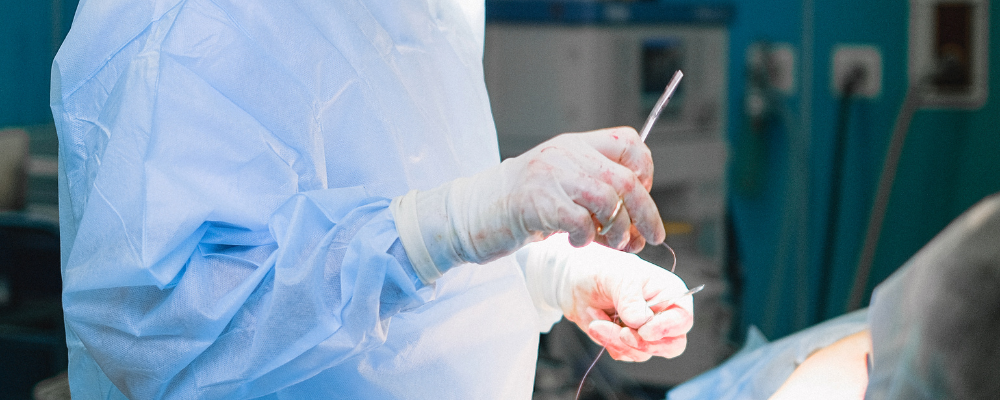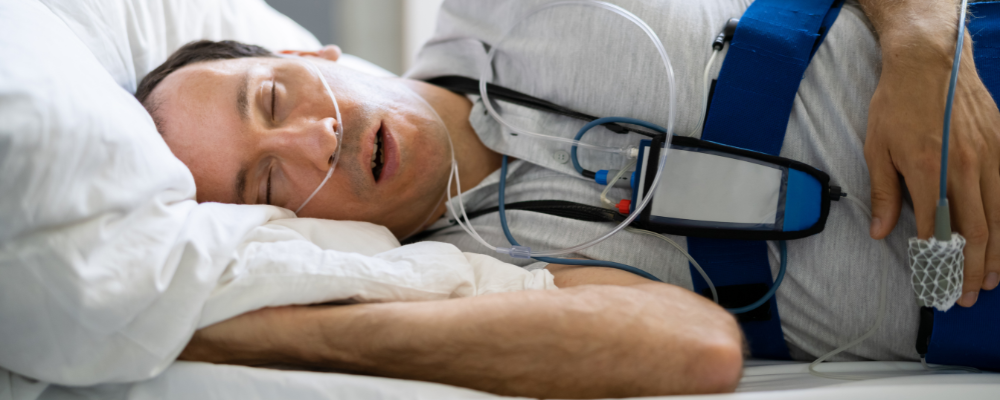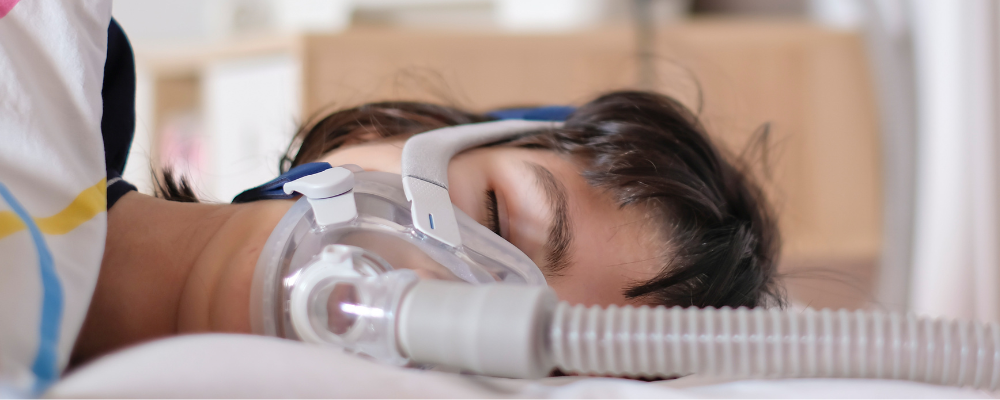Patients with OSA (obstructive sleep apnea) can also have other sleep disorders. Any number of factors can keep you from getting a good night’s sleep, throwing off your circadian rhythm. This is your body’s natural rhythm that sets your awake and sleep schedules. So if an apnea patient needs to reach for sleep medicine, is the well-known sleep aid melatonin safe for continuous positive airway pressure (CPAP?)
We’re here to close the book on your search! Stick with us and we’ll explore the topic of this over-the-counter supplement and how it can interact with obstructive sleep apnea (OSA).
What Is Melatonin, and How is it Used?
Let’s start with an overview of what melatonin is and why it is used. Melatonin is, in brief, a brain hormone linked to the circadian rhythm. It is a natural secretion made by a small gland in the brain called the pineal gland. It is produced in response to darkness, acting as a signal to go to sleep at night. This is the same glad that allows us to be awake and functional during daylight hours and promotes REM sleep while we rest.
Melatonin supplements can increase these hormone levels, nudging the system toward sleep. They’re considered a short-term dietary supplement, which are overseen by the FDA albeit still under clinical trial. They are available over-the-counter as pills and are often advertised as an aid for jet lag; there is research supporting its use for jet lag. Several studies show that it performed better than a placebo (a sugar pill) at helping both eastward- and westward-bound travelers.
The effects of melatonin also have support from research on treating anxiety before and after surgery. They found that melatonin may be as effective as benzodiazepines at reducing anxiety and promoting sleep. Benzodiazepines are a class of anxiety medications; not to be confused with antidepressants. Melatonin was most effective in cases of anxiety before surgery..
As far as side effects, recent testing discovered that they are few and are generally mild. Melatonin side effects included headache, nausea, dizziness, and sleepiness.
Can Melatonin Make Sleep Apnea Worse?
The answer is yes. Melatonin and sleep apnea are not a good combination. Therefore, taking melatonin while using a CPAP machine is also not a good combination.
Dr. Monique May is a Board-Certified Family Physician and a partner of Aeroflow Sleep. She had this to say on the topic:
“Excess amounts of melatonin may cause the muscles of the throat and upper airway to relax too much, worsening the obstruction seen with sleep apnea.”
“The other possible concern with melatonin is the potential for its interaction with several medications that are commonly used by people with sleep apnea."
"Drug interactions are possible with blood thinners, as well as medications for diabetes, high blood pressure, and certain psychiatric conditions.”
Her final word of advice?
“People taking these types of medicines should ask their physician or pharmacist before starting any type of supplement or over-the-counter medicines.”
What Sleep Aids Can I Take with Sleep Apnea?
The first thing you must know is that an OSA patient should never use sleep aids for the treatment of sleep apnea. It’s true that OSA can decrease quality sleep time and increase daytime sleepiness. But taking sleeping pills to get better sleep does not help underlying sleep apnea. Save that treatment for your CPAP.
Sleeping though apnea-hypopnea episodes is not a genuine reduction in your AHI. AHI stands for Apnea-Hypopnea Index, the measure of how many times an hour you stop breathing for 10 or more seconds. You must treat OSA as directed. If you are still experiencing sleep problems, you should consult your doctor. Addressing the airway blockages and solving the airflow puzzle are the best places to start. Continued poor sleep quality can then be medically addressed.
Most sleep aids, even OTC sleep aids, run the risk of making apnea worse. Your doctor can lead you toward better treatment options; including CPAP therapy. They might even prescribe sleep aids that may be safe for certain patients with OSA as well as comorbidities associated with OSA; such as cardiovascular disease and obesity. This should only be undertaken with your healthcare provider's medical supervision.
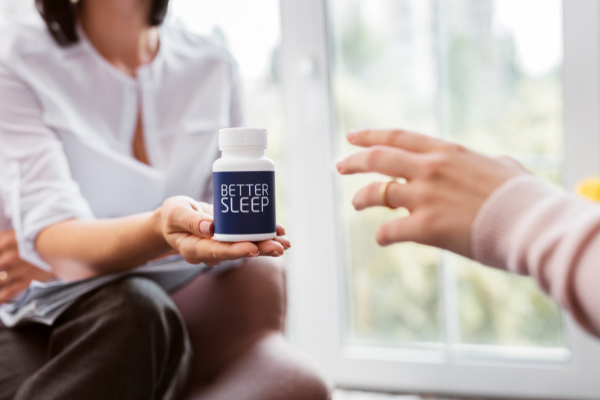

3 Tips to Help You Fall Asleep with Sleep Apnea
1. Get a humidifier to increase your comfort.
Humidifiers can reduce the inflammation of nasal tissues. Humidifiers may even reduce nose bleeds by keeping your airways moisturized. Be sure to keep yours clean and allow it to dry properly between use to prevent the build up of bacteria, mold, and mildew. These can cause problems for you on their own.
If you suspect that you may have untreated sleep apnea, then seeking treatment is the first and only option worth considering. Treatment more than likely makes you a CPAP user. OSA patients use CPAP machines to regulate their breathing while sleeping, and positive airway pressure (PAP) levels are set depending on what your AHI is.
If you are still having trouble sleeping after appropriate sleep apnea treatment and want to explore supportive options before calling your doctor, you may consider trying these home remedies:
2. Add a dollop of honey to nightly herbal tea.
Honey can reduce swelling, which in turn reduces snoring. It also may reduce the severity of your seasonal allergies. Be sure to use local honey made from pollen in your area.
3. Sleep on an angled pillow at night.
This helps keep your spinal column in alignment. It also helps keep your airways clear for better results with your CPAP therapy.
If these suggestions are not enough to address your sleep disturbances, it’s time to reach back out to your medical team. There may be more going on beyond your OSA. Only your doctor(s) can weigh the pros and cons of OTC and prescription treatments. They are best informed about potential side effects on your unique quality of life.
Newly Diagnosed with Sleep Apnea?
If you’ve only just received your OSA diagnosis, you can also reach out to us–Aeroflow Sleep. We may get your CPAP supplies covered up to 100% through insurance. All you need to do is fill out our insurance qualify form, complete your Sleep Apnea Profile, and then view your estimated cost. We take most private, secondary, Medicare and Medicaid insurance plans. Click below to get started!
References:
Hansen MV, Halladin NL, Rosenberg J, et al. Melatonin for pre- and postoperative anxiety in adults. Cochrane Database of Systematic Reviews. 2015;(4):CD009861. Accessed at www.cochranelibrary.com on October 10, 2019.
Herxheimer A, Petrie KJ. Melatonin for the prevention and treatment of jet lag. Cochrane Database of Systematic Reviews 2002, Issue 2. Art. No.: CD001520. DOI: 10.1002/14651858.CD001520. Accessed 20 March 2024.
Madsen BK, Zetner D, Møller AM, Rosenberg J. Melatonin for preoperative and postoperative anxiety in adults. Cochrane Database Syst Rev. 2020 Dec 8;12(12):CD009861. doi: 10.1002/14651858.CD009861.pub3. PMID: 33319916; PMCID: PMC8092422.


